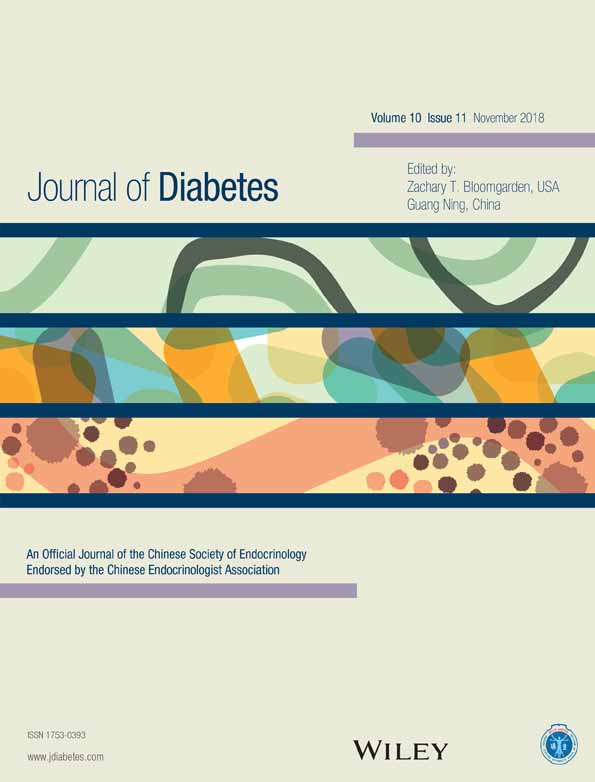Associations of sleep duration and prediabetes prevalence in a middle-aged and elderly Chinese population with regard to age and hypertension: The China Health and Retirement Longitudinal Study baseline survey
在中老年中国人群中研究老龄化和高血压对睡眠时长与糖尿病前期患病率之间关系:中国健康与养老追踪基线调查
Abstract
enBackground
The aim of the present study was to examine the age-specific associations between self-reported sleep duration and prevalent prediabetes in middle-aged and elderly Chinese with or without hypertension.
Methods
In all, 2985 Chinese adults aged ≥45 years from the China Health and Retirement Longitudinal Study (CHARLS) baseline survey were selected for analysis. Sleep duration was assessed by structured questionnaires and then categorized into three groups (≤6, 6–8, and >8 h). The prevalence of prediabetes was defined using fasting plasma glucose (100–125 mg/dL) and/or HbA1c (5.7%–6.4%) in conjunction with no previous diabetes diagnosis and no antidiabetic medication. Relationships between self-reported sleep duration and prevalent prediabetes were examined according to age (45–60 years, middle-aged; ≥60 years, elderly) and hypertension groups using Poisson regression models to estimate prevalence ratios (PRs) and 95% confidence intervals (CI).
Results
Compared with the reference group of 6–8 h sleep/night, short sleep (≤6 h/night) was associated with an increased risk of prediabetes in the whole sample (PR 1.09, 95% CI 1.01–1.17) after adjusting for confounders. This association was more pronounced in elderly participants without hypertension (PR 1.27, 95% CI 1.07–1.51).
Conclusion
This study suggests that participants with a short sleep period are at a moderately increased risk of prediabetes, particularly in elderly subjects without hypertension. Aging and hypertension may be important in the relationship between short sleep and impaired glucose metabolism.
Abstract
zh摘要
目的
本研究旨在探讨已经患有和没有患有高血压的中国中老年人群中自我报告的睡眠时长与糖尿病前期患病率的年龄特异的相关性。
方法
在中国健康与养老追踪基线调查(China Health and Retirement Longitudinal Study,CHARLS)中, 共2985名中国成年人(≥ 45岁)被纳入到本研究。睡眠时长数据是从特定的调查问卷获取的, 分析时将其分为3组(≤ 6、6–8和> 8小时/每晚)。糖尿病前期的定义为空腹血糖在100-125 mg/dL的范围内和/或HbA1c在5.7%-6.4%范围内, 同时没有糖尿病史和糖尿病用药史。利用泊松回归, 对自我报告的睡眠时长与糖尿病前期患病率进行关联性分析, 然后根据年龄(45-60岁, 中年;≥ 60岁, 老年)和有无高血压分为4个亚组并分析, 得到相应的患病比(prevalence ratios,PRs)和其95%置信区(CI)。
结果
和睡眠时长的参考组(6-8小时/每晚)相比, 在校正其他混杂因素后, 在总人群中睡眠不足(≤ 6小时/每晚)与糖尿病前期的患病风险增加有关(PR 1.09,95% CI 1.01-1.17)。它们的关联性在没有高血压的老年亚组中更显著(PR 1.27,95% CI 1.07-1.51)。
结论
本研究提示睡眠不足会增加糖尿病前期的患病风险, 尤其在没有高血压的老年人群中会更加明显。老龄化和高血压可能在调节睡眠不足与糖代谢异常的关系中起到重要的作用。




